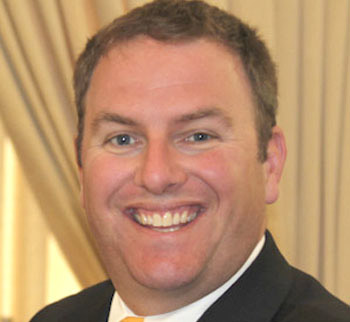HALIFAX — Advocates for Palestinian rights are obsessed with Israel and are delirious to think a change to Canada’s hate speech laws are intended to silence critics of Israel, says a high-ranking official with the Centre for Israel and Jewish Affairs.
“These people must also think Elvis, JFK and Marilyn Monroe are residing on a desert island somewhere,” Richard Marceau, CIJA’s general counsel and senior government adviser, said in a phone interview from Ottawa.
He emphasized what is being proposed as a change to Bill C-13, the federal government’s proposed cyberbullying law, “is nothing new. It just brings into line, with several provincial antibullying and hate laws, section 718.2, subsection A, subsection I of the Criminal Code of Canada.”
In a story in the March 20 edition of the Halifax Chronicle Herald, Paul MacLeod of the newspaper’s Ottawa bureau reported that the change to Bill C-13 would expand the definition of groups that can be the subject of hate propaganda under the Criminal Code The code now lists people distinguished by colour, race, religion, ethnic origin, or sexual orientation. Bill C-13 adds age, sex, and mental or physical disability, as well as national origin.
Some legal experts, Marceau included, say this is likely a mere housecleaning amendment to bring the Criminal Code in line with the wording of other statutes.
However, Seriously Free Speech, a British Columbia-based group formed to defend critics of Israel, sees it as a backdoor way to crack down on criticism of Israel and they plan to be vocal about it.
Speaking by telephone from British Columbia, the organization’s co-chair, Brian Campbell, told The CJN there has been “a pattern of the Conservative government equating criticism of Israel as a political entity with anti-Semitism. Adding national origin to the hate speech section of the Criminal Code makes it possible to use that section as criticism of Israel. There’s a definite tone and climate to the change [to the law].”
He said it would take a change of government or a change in the policy toward Israel to alter the thinking of Seriously Free Speech, formed in 2007 in response to a lawsuit brought by then-CanWest newspapers against a parody of Israel in a Vancouver Sun story.
Included in its list of principles, taken from its website, the organization states: “We reject all forms of hate speech, including antisemitism, Islamophobia and racism.”
It also claims: “We believe that political criticism of Israel’s policies and actions, including characterizing it as an ‘apartheid state’ or campaigning for boycott, divestment and sanctions, is legitimate political speech, the expression of which must be protected. Such speech does not constitute anti-semitism.”
Campbell said his group “will be publicly opposing [the change contained in Bill C-13]. We believe it is more than just housecleaning. We still believe that it is an attempt to make criticism of Israel hate speech.”
In a statement, the Department of Justice said the amendment is designed to match the wording of a protocol from the Council of Europe, a human rights organization. The change would have the Criminal Code mirror the council’s definitions of racist or xenophobic material.
In fact, the code already refers to national origin in a section about sentencing. The Charter of Rights and Freedoms also mentions national origin.
But some pro-Palestinian groups and the British Columbia Civil Liberties Association say they’re skeptical, partially because of Prime Minister Stephen Harper’s recent speech in the Knesset in which he referred to events such as Israeli Apartheid Week as “the face of the new anti-Semitism.”
Israeli Apartheid Week calls for boycotts, divestment and sanctions directed against Israel until it changes its policies toward the Palestinians.
“In much of the western world, the old hatred has been translated into more sophisticated language for use in polite society,” Harper said.
“People who would never say they hate and blame the Jews for their own failings or the problems of the world instead declare their hatred of Israel and blame the only Jewish state for the problems of the Middle East.”
Some critics see Harper’s speech, and the hate law change, as part of a trend to directly equate criticism of Israel with anti-Semitism.
Critics also raise concerns that the hate-speech amendment is packaged under a cyberbullying bill rather than being debated on its own merits.
